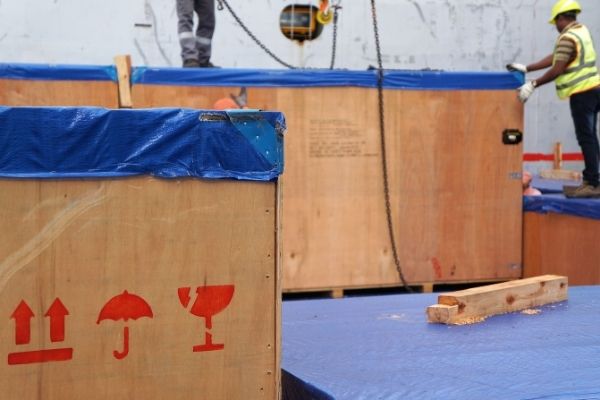As we head into 2021, we want to reflect on what a year 2020 was for the maritime industry. Here’s a rundown of some of the top maritime news stories of the past year:
COVID-19 Outbreak
Undoubtedly, the biggest maritime news story of 2020 was the COVID-19 coronavirus pandemic. Working in the cramped, tight spaces found aboard vessels and offshore oil rigs places personnel at increased risk of contracting the virus. Thousands of maritime workers have contracted the disease and hundreds have died.
The Centers for Disease Control and Prevention has released guidelines to help maritime workers and ship operators prevent, detect, report, and medically manage suspected or confirmed COVID-19 cases. Some preventative measures recommended by the CDC include:
Another problem caused by the pandemic has been sailors stranded on vessels due to quarantine restrictions.
The situation is looking up for 2021, as at least two COVID-19 vaccines have been developed and approved for use.
Maritime Workers Designated as Essential Personnel
The uninterrupted flow of maritime commerce is critical to America’s economy. With all the COVID-19 related stay at home orders, the Coast Guard published Marine Safety Information Bulletin 11-20 (MSIB 11-20), which listed several types of maritime workers considered to be essential personnel. These included ship operators, port workers, pilots, stevedores, longshoremen, and line handlers, as well as equipment, cargo, crane, and dredging operators.

Legislation Proposed to Extend Jones Act Coverage to Offshore Wind Energy Production
On September 24, 2020, the U.S. House of Representatives passed legislation, H.R. 4447, the Expanding Access to Sustainable Energy Act of 2019, which included a provision that would amend the Outer Continental Shelf Lands Act (OCSLA) to confirm that the Jones Act applies to all offshore energy development on the Outer Continental Shelf, including wind energy.
Four Killed In Corpus Christi Dredge Explosion
At around 8 a.m. on August 21, 2020, the cutter head dredge Waymon L. Boyd struck a pipeline in the upper reaches of the Corpus Christi Ship Channel, which triggered an explosion and vessel fire. Four crew members were killed and others were injured; the accident forced the U.S. Coast Guard to close the port’s inner harbor inward from the Harbor Bridge.
Fire Sweeps Through a Marina in Alabama, Killing Eight
Eight people, including four children, were killed when a massive fire swept through an Alabama marina and destroyed 35 boats. The fire broke out around 12:40 a.m. on January 28 at a marina at Jackson County Park marina on the Tennessee River. Several vessels moored at the marina were houseboats that served as the permanent residences of some of the victims.
Self-Sailing Ships on the Horizon
You’ve heard of self-driving cars, so why not self-sailing ships? Advances in technology are leading to the development of autonomous, or remote-controlled vessels. While these advances won’t replace a vessel’s crew, they will reduce the number of crew exposed to risks — and improved safety is good maritime news. Experts say the first fully autonomous vessel will be hitting the water in about five years.
Three Missing After Towboat Collision on the Mississippi River
At about 5:30 a.m. on January 26, 2020, the towboat RC Creppel collided with the towing vessel Cooperative Spirit on the Mississippi River in the vicinity of Mile Marker 123 near Luling, Louisiana. At the time of the accident, the RC Creppel was pushing two barges carrying sulfuric acid, one of which was damaged during the collision and began to leak toxic fumes into the air. Four crew members went missing after the accident, but only one was ever rescued.
Off-Shore Oil Production Down Sharply
Falling oil prices and the COVID-19 pandemic have taken their toll on offshore oil production. This has been a continuing maritime news story throughout the year. The site Rig Zone reported that as a result, offshore rig values have declined almost 42 percent in 12 months, equating to a loss of around $30 billion.
Hurricane Damage
In August, Hurricane Laura struck the Lake Charles region of Louisiana. Several shrimp boats were sunk during the storm. The Isle of Capri casino boat broke her mooring lines and smashed into the I-10 Bridge over the Calcasieu River at Lake Charles, and the decommissioned Gearing-class destroyer museum ship broke loose from her moorings and drifted a mile downriver before drifting aground.
Less than a month later, Hurricane Sally wreaked similar damage in Pensacola, Florida when several construction barges broke loose from their moorings and were driven ashore.
Lambert Zainey is Here to Help Injured Maritime Workers
If you’ve been injured in an on-the-job maritime accident, the Jones Act and other maritime laws give you the right to seek compensation for the losses caused by your injuries, including maintenance, care, and pain and suffering. Lambert Zainey is here to protect your rights.
Maritime law is complicated, and you’ll want an experienced maritime accident lawyer on your side. We’ve been representing injured seamen, longshoremen, and other maritime workers since the 1970s. One of the keys to our success has been our ability to stay on top of changes in the maritime industry and its laws.
Contact the Lambert Firm today to schedule a free initial consultation with one of our maritime attorneys. We are based in New Orleans, Louisiana, but serve workers injured in maritime accidents across the U.S.







